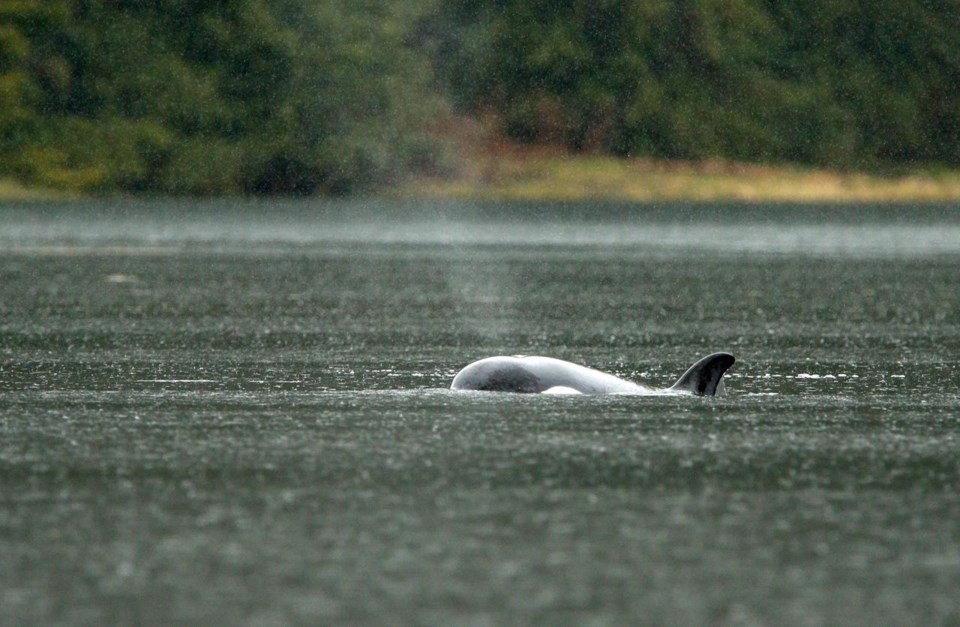ZEBALLOS, СŔ¶ĘÓƵ — The skin of a young killer whale trapped in a Vancouver Island lagoon is turning white due to the low salinity of the water, but the Fisheries Department says the calf is active and isn't showing signs of emaciation.
The statement issued late Monday says the female calf's behaviour and activity have remained constant.
It says planning for a rescue operation continues with the Ehattesaht First Nation.
The statement says freshwater in the lagoon has whitened skin on the dorsal side of the calf, but veterinary experts aren't concerned about the short-term impact.
The Ehattesaht First Nation has named the two-year-old calf kwiisahi?is, meaning Brave Little Hunter.
The calf has been trapped alone near Little Espinosa Inlet, about 450 kilometres northwest of Victoria, since March 23, when its pregnant mother became trapped on a rocky beach at low tide and died.
Equipment has been arriving in the nearby village of Zeballos for a complex rescue operation, in which experts plan to use a net to corral the calf into a sling in the shallows of the three-kilometre-long lagoon.
The calf would then be hoisted out and transported to an ocean net pen in open waters, before hopefully being released when her family pod of Bigg's killer whales is nearby.
The department said last week that a rescue attempt early this week was unlikely.
It said access to the lagoon will be closed to all but essential personnel when the rescue takes place.
This report by The Canadian Press was first published April 8, 2024.
The Canadian Press




